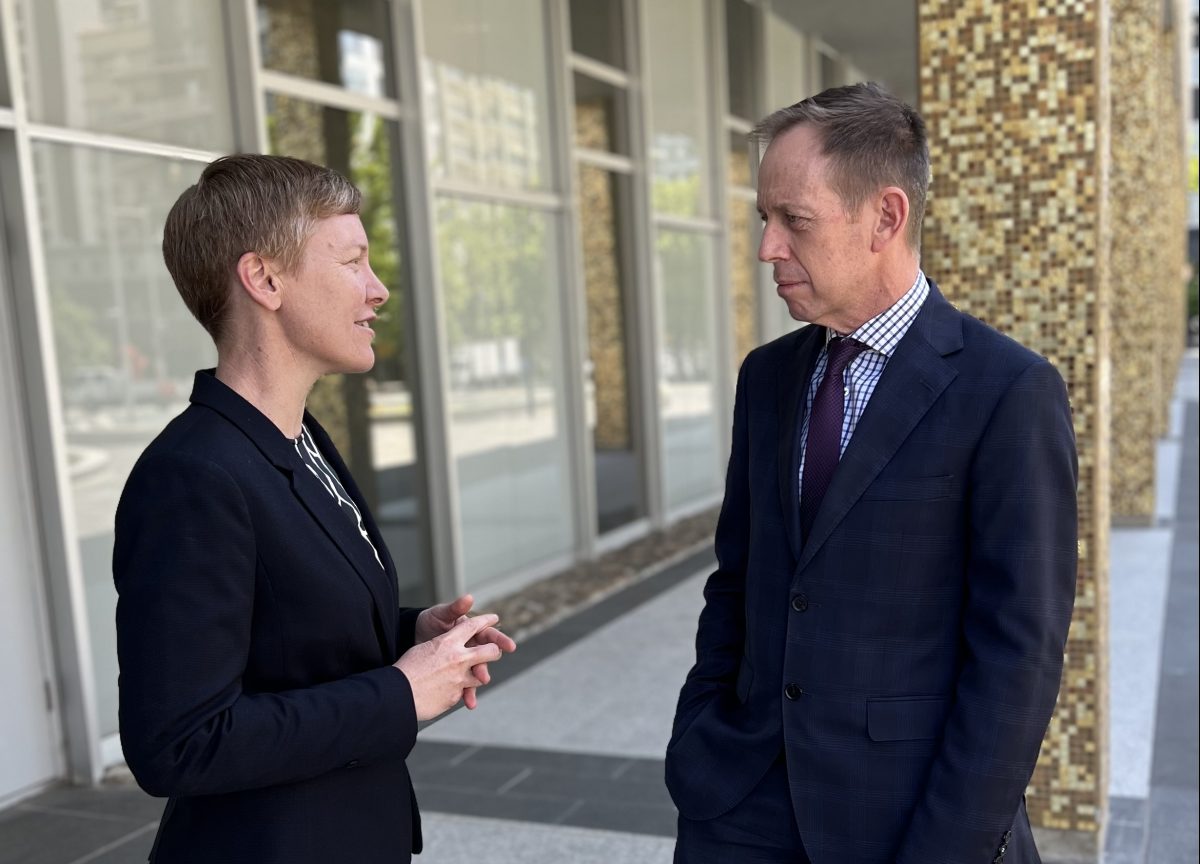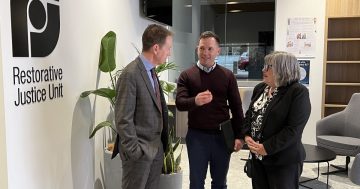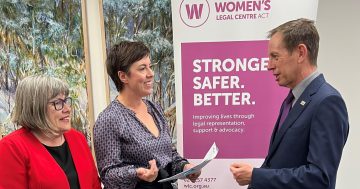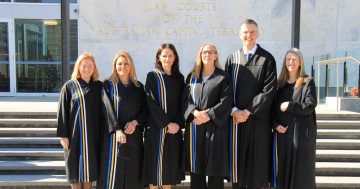
Victims of Crime Commissioner Heidi Yates and Attorney-General Shane Rattenbury both said the scheme has been well received. Photo: Lizzie Waymouth.
A review of the third phase of the ACT’s restorative justice scheme for domestic and family violence and sexual violence offences found it has generally been successful but that there are currently insufficient resources to meet the high levels of demand.
ACT Attorney-General Shane Rattenbury said the evaluation has shown restorative justice is working well, and the ACT Government should consider more funding for the scheme.
The Australian Institute of Criminology’s review made 10 recommendations for the government, which included increasing capacity, shortening waiting lists and tackling the misconception that restorative justice is ‘soft justice’.
The Attorney-General said the ACT Government will prepare a budget bid based on these recommendations.
“What we have seen is pressure building on the restorative justice unit because these matters are taking longer,” he said.
“Because of the sensitivity of these sorts of matters, they are more resource intensive.”
Restorative justice programs offer a platform for victim-survivors to explain how the offending impacted them and give the offender the chance to face the victim-survivor and apologise for the harm caused.
The ACT’s restorative justice scheme first began nearly 20 years ago as a program targeted at young people involved in minor offences.
In 2016, the scheme expanded to accept referrals from adult offenders and serious offences, and in 2018 it was extended further to include domestic and family violence (DFV) and sexual violence offences.
In 2022-23, the Restorative Justice Unit received 135 referrals and convened 47 conferences involving 59 victims and 53 offenders.
Mr Rattenbury said the evaluation has shown that restorative justice is a “valuable alternative” that adds to the range of options available for people, particularly regarding DFV.
“We are at the forefront of much of this work and it demonstrates that this is a valuable alternative that adds to the range of models that are available for people through these sorts of matters, particularly when it comes to family and domestic violence,” he said.
“The relationship [with the perpetrator] is often a continuing one. It is a sibling or a child or a parent … those relationships that you actually want to rebuild over time.
“Restorative justice processes can be really powerful in enabling families to continue to function together into the future.”
Mr Rattenbury said there is still a belief that restorative justice is a lesser option compared with other forms of justice, but this is not the case.
“I think for people who have not been involved in this process, they might consider it a soft option,” he said.
“It can be very confronting [for a perpetrator], having to sit there and have your victim tell you the impact you’ve had on their lives, the trauma that’s caused them, how unsafe they feel in the community.
“Those sort of things are important for perpetrators to hear, and the research and evaluation shows it does have a powerful impact on the perpetrators in terms of reducing reoffending.
“Victim-survivors feel that this is a more powerful form of justice. They actually feel that the perpetrator, in having to come to the table, has had to own up and take responsibility for their actions.”
ACT Victims of Crime Commissioner Heidi Yates said she “warmly welcomed” the report’s findings.
“The evaluation tells us that victim-survivors have been able to make careful, informed, supported decisions about whether restorative justice is the right pathway for them,” she said.
“They have reflected that they feel their safety has been carefully taken account of in the process and perhaps most importantly that they have been given the dignity of the voice of the ability to explain what happened to them and the impact of that in their own terms together.
“These things indicate that restorative justice has real potential to address many of the current challenges of the criminal justice process.”





















